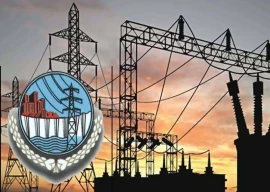
Under the plan, the federal government approved two holidays a week, closure of markets at sunset and staggering of holidays in industries. However, the decision was taken without consultation with the provinces, two of whom rejected the two weekly holidays and continued their activity on Saturday last week.
Punjab and Khyber-Pakhtunkhwa have refused to accept the move while Sindh has yet to take a stance and will announce its response next week. Uncertainty and confusion prevailed as people did not know whether government offices would stay open on Saturday or not.
Supreme Court Chief Justice Iftikhar Muhammad Chaudhry has also called a meeting of the court on Monday to discuss whether they would observe two weekly holidays. A lack of consensus may force the government to abandon the step as differences among stakeholders may undermine its efficacy.
“There was no need of such measures as these will not address the energy crisis, which was mainly the result of corruption, theft and inefficiency of power distribution companies,” said Hamad Aslam, Group Head of Equities of BMA Capital.
Elaborating, he said the government needed to tackle inefficiencies both on the production and consumption fronts. On the production side, corruption and transmission and distribution losses in Pakistan Electric Power Company and other power companies must be eliminated to improve energy supplies.
In some power distribution companies, transmission and distribution losses, called line losses, stand at high levels in the range of 25 to 30 per cent of their production. How the country could be self-sufficient in energy supplies with such high line losses, is the question asked by many experts.
On the consumption side, Aslam said, the government departments were the main defaulters, which did not pay their electricity bills with arrears running into millions of rupees. On the other hand, residential colonies with backing of some political organisations mostly do not pay their power bills, putting pressure on the rickety infrastructure and precarious financial conditions of power companies.
Power theft is also endemic as illegal connections could be seen in many areas with no threat of action by power producers.
When power tariffs could be increased so quickly, why illegal connections could not be removed, Aslam asked.
According to estimates, inter-corporate debt in the energy supply chain has accumulated to around Rs300 billion with fuel suppliers to power producers all coming under its trap.
Aslam saw construction of dams as the best possible solution to the energy crisis, but doubted the will of the government. “Building of big dams takes around five years, which the political governments are reluctant to undertake because of the long period involved in the process,” he said.
On the positive side, the government is expected to start work on Diamer-Basha Dam next week, which will cost $11 billion and generate 4,500 megawatts of electricity.
Despite the crippling energy crisis, the government seems to be undecided over the construction of Iran-Pakistan gas pipeline apparently due to US pressure. Though Iran has almost completed its part of the pipeline which is close to reaching the Pakistan border, Pakistan is yet to begin laying the pipeline on its part of the territory. “The US does not want Pakistan to buy gas from Iran, which will substantially address the energy shortages, improve economic growth and reduce dependence on US aid,” he said.
the writer is incharge Business desk for the Express tribune and can be contacted at ghazanfar.ali@tribune.com.pk
Published in The Express Tribune, October 17th, 2011.







1731570357-0/elon-musk-(1)1731570357-0-270x192.webp)















COMMENTS
Comments are moderated and generally will be posted if they are on-topic and not abusive.
For more information, please see our Comments FAQ